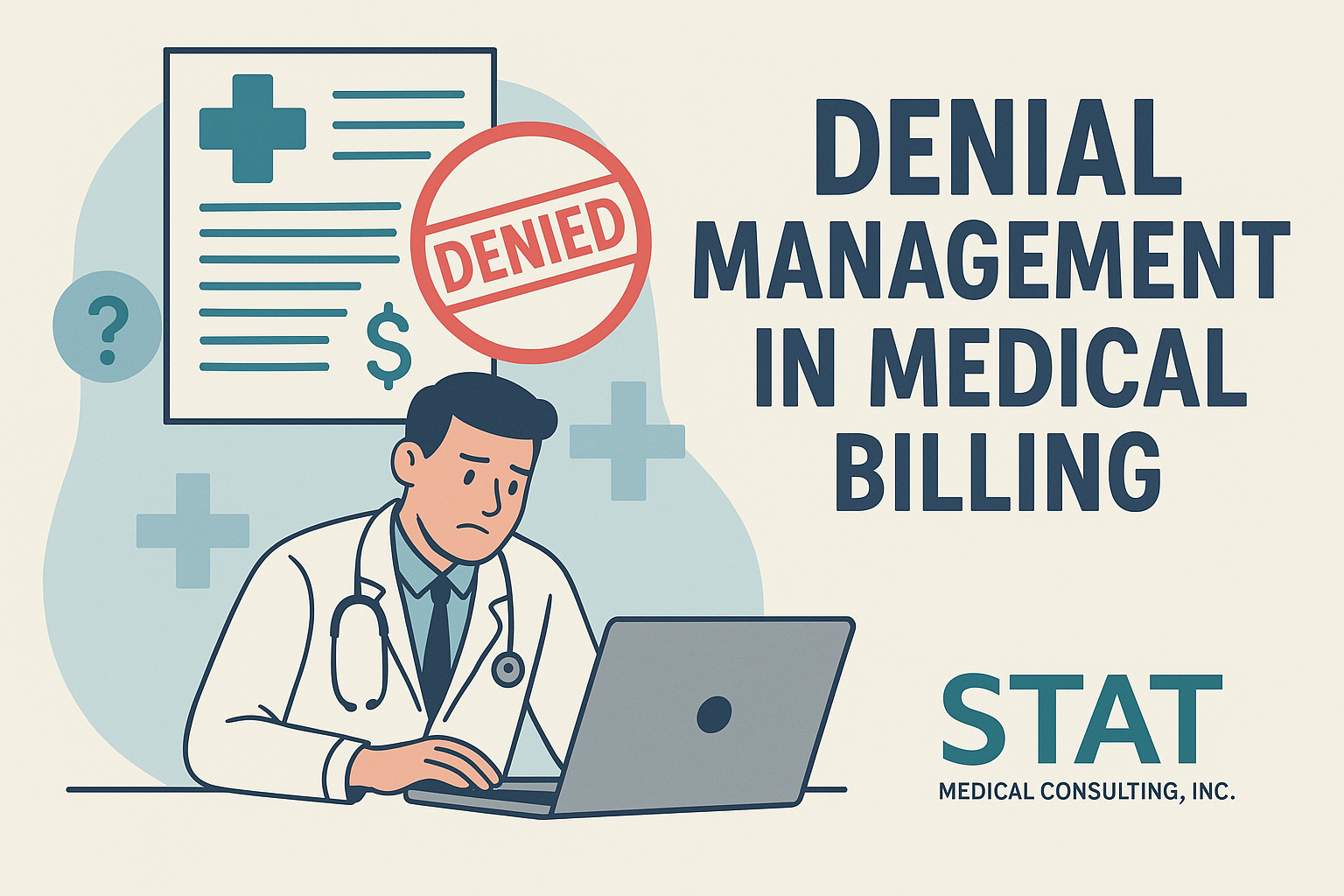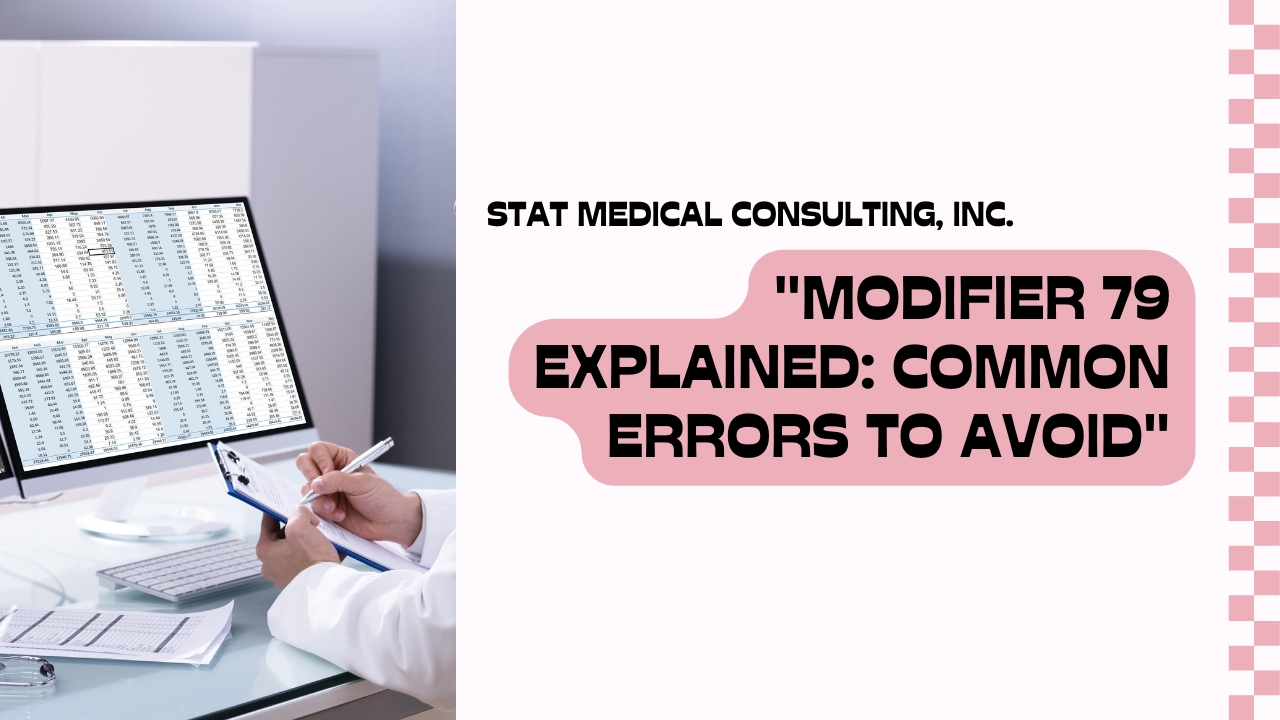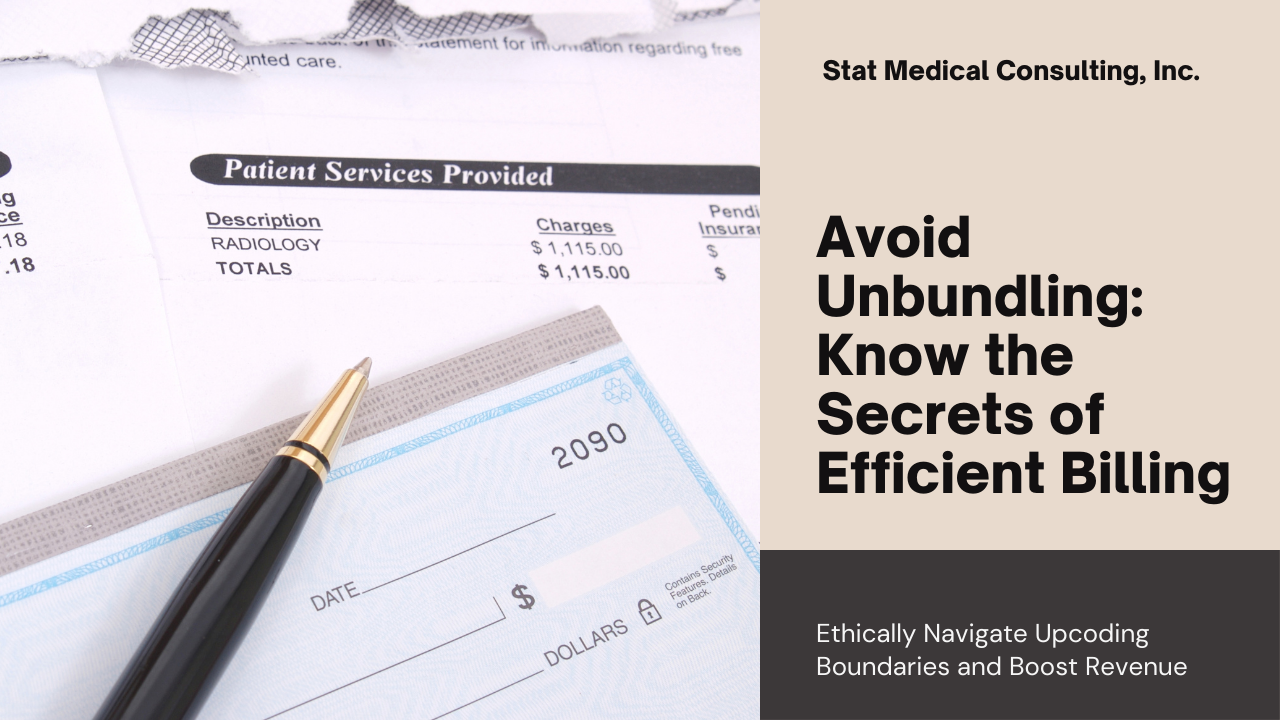Mastering Denial Management: Unraveling the Key to Optimal Revenue Recovery
Denial Management
Introduction:
In the rapidly evolving landscape of the healthcare industry, effective denial management has become a critical aspect of maintaining financial stability for healthcare organizations. The process involves identifying, analyzing, and resolving claim denials to minimize revenue loss, optimize reimbursement, and streamline the revenue cycle. By mastering denial management, healthcare providers can ensure smooth operations and enhance their overall financial health. This comprehensive guide explores the essence of denial management, its significance, and practical strategies to reduce claim denials and maximize revenue recovery.
Understanding Denial Management:
Denial management is a systematic process that encompasses various activities to handle claim denials efficiently. The primary goal is to identify the root causes of denials and take proactive measures to prevent future denials. This process involves:
Identifying Denials: Revenue cycle managers closely monitor claims to promptly identify denials. By categorizing denials based on common reasons such as coding errors, missing documentation, eligibility issues, or medical necessity, insights into underlying causes are gained, allowing for prioritized efforts.
Analyzing Denials and Identifying Root Causes: Analyzing denial trends is essential to understand the reasons behind denials. By conducting root cause analysis, patterns and systemic issues contributing to denials can be identified. This analysis is vital for developing targeted strategies and process improvements to prevent similar denials in the future.
Submitting Appeals: Resolving denials and submitting appeals are crucial steps in denial management. Revenue cycle managers work closely with coding and billing teams to gather necessary information and ensure timely and accurate appeal submissions within payer guidelines.
Optimizing the Denial Management Process: To minimize denials, process improvements and corrective actions are essential. Collaborating with other departments like coding, billing, clinical documentation improvement, and provider relations enables addressing systemic issues and enhancing communication to prevent denials.
Significance of Denial Management in Healthcare:
Effective denial management holds significant importance for healthcare organizations for the following reasons:
Financial Stability: Denied claims lead to revenue loss, impacting the financial stability of healthcare providers. Proactive denial management ensures that claims are appropriately processed, reducing the risk of lost revenue.
Resource Optimization: Resolving denied claims often involves significant time and effort. By preventing denials in the first place, healthcare organizations can optimize resources, directing them towards more critical tasks.
Improved Operational Efficiency: Managing a high volume of denied claims can hinder operational efficiency. Denial management ensures streamlined processes, reducing administrative burdens and improving overall workflow.
Enhanced Patient Care: Denials can lead to delayed or denied treatments for patients. Effective denial management ensures that patients receive timely and necessary medical care, promoting better patient outcomes.
Denial Prevention Strategies:
Healthcare organizations can implement several strategies to proactively prevent claim denials and enhance revenue cycle management:
Maintain Clinical Documentation Integrity: Accurate clinical documentation is vital for capturing the true clinical picture. Healthcare organizations should actively identify and address areas for improvement in documentation, code specificity, and clinical documentation integrity.
Educate and Train Staff: Providing comprehensive education and training to staff involved in the revenue cycle process is key to reducing denials. Enhancing coding knowledge, documentation practices, and understanding payer policies can minimize common errors.
Analyze Data: Analyzing denial data and generating reports help identify denial trends and measure the effectiveness of denial management efforts. Leveraging data analytics tools enables revenue cycle managers to track denial metrics, identify patterns, and make informed decisions for improvement.
Collaborate with Payers: Building strong relationships with payers and contractors can improve the claims submission process. Healthcare organizations should work closely with payers to understand specific requirements and ensure accurate and timely claim submissions.
Professional Denial Management Services:
While denial management software offers valuable automation and analytics, it may not always address all the intricacies involved in navigating claim denials. In light of the challenges posed by denied claims, healthcare providers are increasingly turning to professional denial management services to overcome these hurdles effectively.
Statistics indicate that implementing new denial management software may lead to adverse effects, with 65% of healthcare providers experiencing an impact on cash flow, and a staggering 23% reduction in billing staff productivity. Moreover, a 36% increase in the number of denials adds to the complexity of the revenue cycle management process.
Engaging with professional denial management services brings forth several advantages, including:
Expertise and Experience: Professional denial management teams possess extensive knowledge and experience in dealing with diverse denial scenarios. Their expertise ensures thorough analysis and resolution of denials promptly.
Personalized Approaches: Denial management service providers tailor their strategies to meet the unique needs of each healthcare organization. They delve into individual denial patterns to design targeted solutions.
Reduced Administrative Burden: By outsourcing denial management, healthcare providers free up internal resources, allowing staff to focus on core competencies and patient care.
Advanced Analytics and Insights: Professional denial management services leverage sophisticated analytics to identify trends and patterns, enabling continuous process improvement and minimizing future denials.
Timely Appeal Submissions: Denial management experts ensure timely and accurate appeal submissions within payer guidelines, maximizing the chances of successful appeals.
Conclusion:
Mastering denial management is crucial for healthcare organizations to navigate the complexities of the healthcare industry successfully. By implementing effective denial prevention strategies and seeking the assistance of professional denial management services, providers can reduce claim denials, optimize reimbursement, and enhance overall financial health. Denial management not only improves the financial stability of healthcare organizations but also ensures timely and quality care for patients. With continuous improvements and a proactive approach, healthcare providers can thrive in today's dynamic healthcare landscape.











